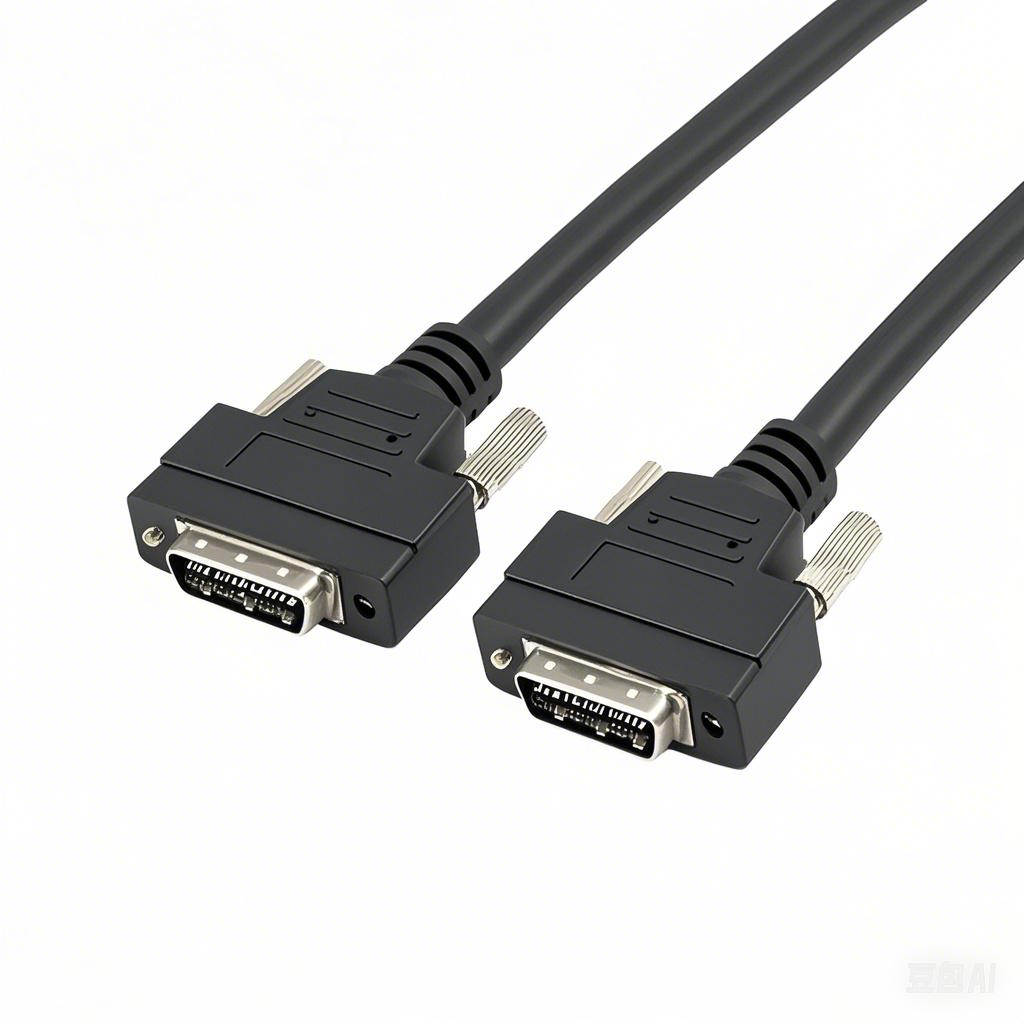What Are the Pressure Rating Requirements for Machine Vision Cables?
Machine vision cables are the vital nervous system connecting high-precision cameras and sensors to controllers. Ensuring their reliability requires careful consideration, and pressure rating (also called crush resistance or crush load) is a critical factor often overlooked, especially in demanding industrial environments. Let’s break down what it means and what requirements you should know.
What Does “Pressure Rating” Mean for Cables?
Simply put, the pressure rating defines how much physical force a cable can withstand pressing down on its surface without being damaged internally or compromising its performance. It’s measured in Newtons per centimeter squared (N/cm²) or sometimes pounds per square inch (PSI).
This force could come from:
- Pinching between heavy moving machine parts or doors.
- Run-over by AGVs, forklifts, or carts.
- Crushing under the weight of heavy equipment or tools.
- Tight clamping in cable carriers, tracks, or under tie wraps.
- Pinching by rollers, wheels, or guide mechanisms.
- Being walked on by personnel.
Why Pressure Rating Matters for Machine Vision Cables
Machine vision cables, especially the critical cable between the camera and interface (like GigE Vision, USB3 Vision, CoaXPress), carry delicate signals for high-resolution images and precise timing. Crushing damage can lead to:
- Short Circuits: Shielding or internal conductors get crushed together.
- Open Circuits: Individual wires break due to crushing force.
- Signal Degradation: Partial damage to shielding or conductors causes noise/interference, leading to image flickering, data dropouts, or unstable connections.
- Intermittent Failures: Problems appear and disappear, making diagnosis difficult.
- Catastrophic Failure: The cable breaks entirely, halting production.
Typical Pressure Rating Requirements & Factors
There isn’t one single universal “required” pressure rating for all machine vision cables. It depends heavily on the specific application environment. However, common ranges and important factors are:
- Location & Application Risk:
- High Risk (e.g., on the floor, near heavy rollers/clamps, under equipment): Cables typically need higher crush resistance, often ranging from 50 N/cm² to over 200 N/cm² (approx. 70-290 PSI). Heavy-duty cables used on AGVs or near presses fall here.
- Moderate Risk (e.g., suspended inside protective cable carriers/drag chains): Requirements are lower, but cables within the chain still experience pressure from clamping, tight bends, and contact with the carrier track. 30-100 N/cm² (approx. 45-145 PSI) is common for quality drag chain cables.
- Low Risk (e.g., secured overhead, away from moving parts/traffic): Standard cables might suffice (< 30 N/cm²), though robustness is always desirable.
- Cable Construction:
- Outer Jacket: This is the first line of defense. High-density PUR (Polyurethane) or PVC jackets offer significantly better crush resistance than soft, flexible TPE (Thermoplastic Elastomer) types used for very high flexibility. PUR is often the go-to choice for crush resistance and flexibility in carriers.
- Shielding: Braided shielding (copper or steel) provides inherent structural support under pressure, far superior to simple foil shielding which crushes easily.
- Inner Fillers: Quality cables use materials like aramid yarn (Kevlar®) or fiberglass fillers that increase tensile strength and help resist crushing by preventing conductors from being compressed tightly together.
- Conductor Stranding: Finer strands (like 32 AWG) packed tightly with fillers offer better crush resistance than larger, fewer strands.
- Overall Design: Multi-layer constructions and elliptical cable designs can distribute pressure better than simple round designs.
Key Specifications to Look For
- Look for UL/CSA “Crush Test” Ratings: Reputable cable manufacturers will list a specific N/cm² or PSI rating derived from standardized tests (e.g., UL, IEC). Ask for this spec.
- Drag Chain Rating (e.g., CLP by IGUS, PGS/PG by Murrelektronik): Cables specifically certified for dynamic use in cable carriers inherently have good crush resistance as part of their overall robustness requirements. Check the manufacturer’s specifications – these often imply a pressure rating of at least 50 N/cm².
- Industrial Robustness Certifications: Standards like IEC 61158 (for fieldbus, often used as a benchmark for vision cable robustness) may include crush test pass/fail criteria. Certifications like IP67/IP68 for water/dust ingress involve crush tests on the cable jacket.
- Heavy-Duty Designation: Terms like “Heavy Duty” or “Robust” usually imply enhanced crush resistance compared to standard flexible cables.
Recommendations for Choosing
- Assess the Hazard: Where will the cable run? What’s the worst-case crushing force it might encounter?
- Prioritize Pur Jacket: When in doubt, choose a high-density PUR jacket.
- Demand Specs: Never buy blind. Ask the manufacturer or distributor for the cable’s certified crush resistance rating in N/cm² or PSI, especially for critical cables.
- Choose Carrier-Rated Cables: For any dynamic application (in automated carriers), always use cables specifically rated for continuous flexing. This inherently selects cables with good crush resistance.
- Consider Reinforced Cables: For extremely high-risk areas (e.g., under forklift paths), look for cables with steel braid outer armor specifically designed for crush and cut resistance. These offer the highest protection.
- Protect When Needed: Use cable ramps, protective conduits, or routing guides in areas with known crush hazards.
In Summary:
Don’t underestimate the physical demands placed on machine vision cables. The pressure rating requirement isn’t arbitrary; it depends on your specific installation and risks. Always check the cable’s documented crush resistance rating (N/cm² or PSI) provided by the manufacturer. Prioritizing cables with high-density PUR jackets, braided shielding, carrier ratings (like CLP/PG), and documented crush specs is the best way to prevent costly downtime and image quality issues caused by crushing damage. Investing in the right physical protection for your cables ensures the reliability and accuracy of your machine vision system.











